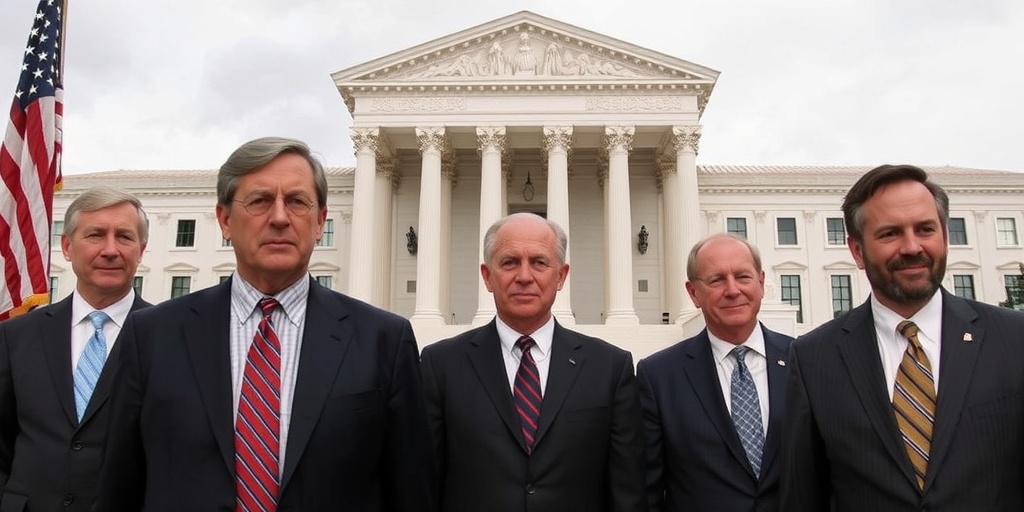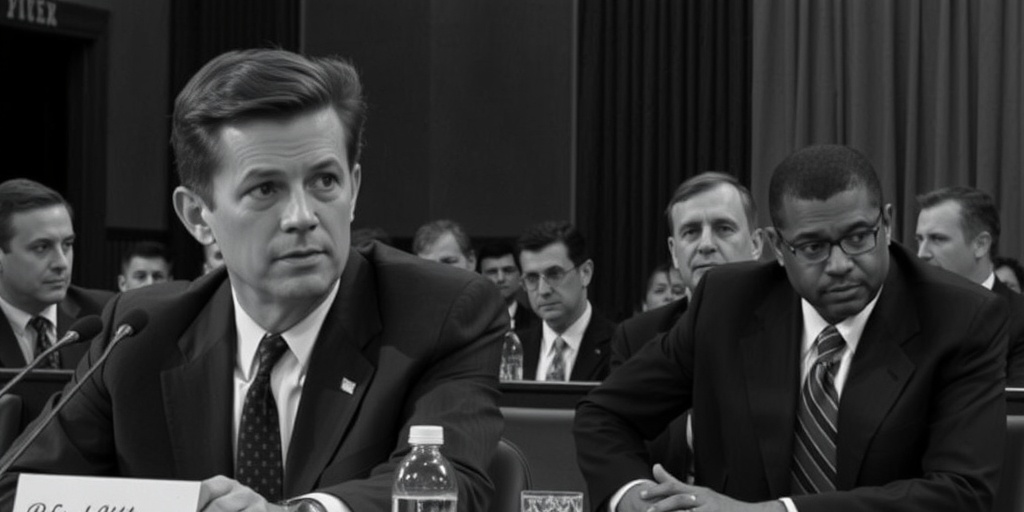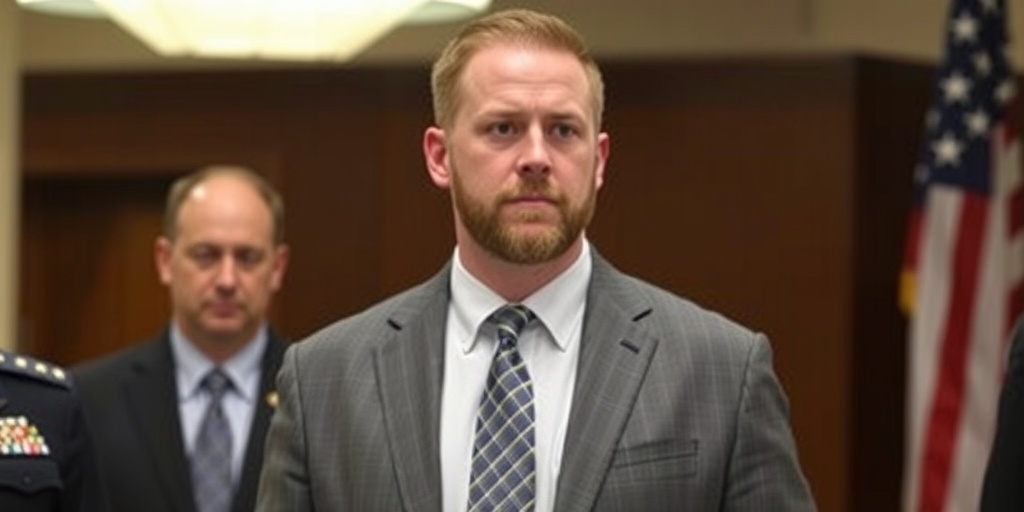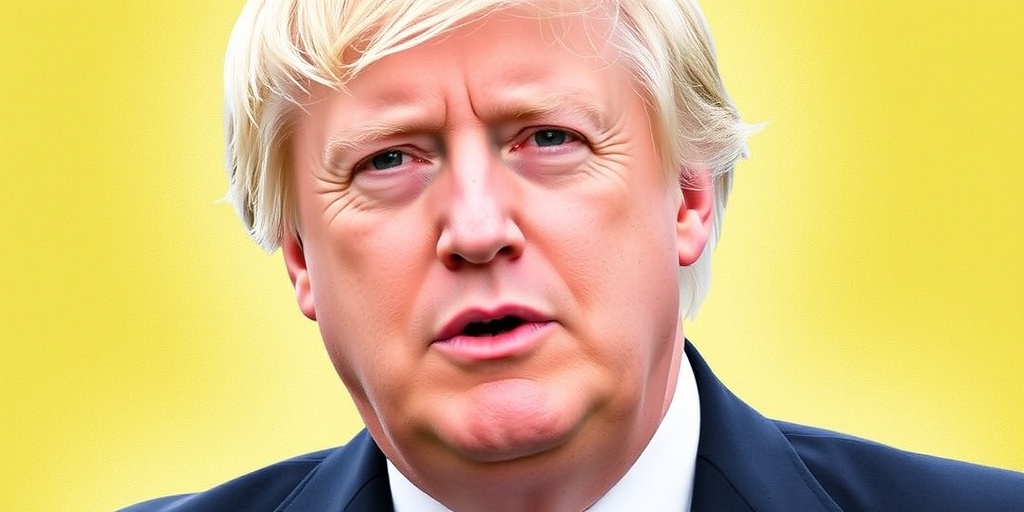Now Reading: Justice Dept. Nominees Indicate Possible Ignoring of Court Orders
-
01
Justice Dept. Nominees Indicate Possible Ignoring of Court Orders
Justice Dept. Nominees Indicate Possible Ignoring of Court Orders

Trump’s Nominees Spar with Democrats Over Presidential Powers at Senate Judiciary Hearing
At a recent Senate Judiciary Committee hearing, the confirmation of three nominees to the upper echelons of the Justice Department turned into a battleground over the Trump administration’s stance on judicial authority. Lawyers representing former President Donald Trump engaged in a lively debate with Democratic senators, centering on whether the administration could disregard certain court orders. This exchange highlights a growing confrontation regarding the scope of presidential powers and the adherence to the rule of law.
The hearing featured three key nominees: Harmeet K. Dhillon, D. John Sauer, and Aaron Reitz, all of whom have established connections to Trump. Both Dhillon and Sauer have had longstanding roles as personal attorneys for Trump, which added extra weight to the discussions. Reitz, nominated to lead the Office of Legal Policy, faced scrutiny for a past social media statement suggesting that Trump could take liberties similar to those of President Andrew Jackson, who unceremoniously ignored a Supreme Court ruling in 1832.
During the proceeding, Reitz stated, “There is no hard and fast rule about whether, in every instance, a public official is bound by a court decision.” His comment elicited a notable response from Democratic Senator Richard J. Durbin of Illinois, who characterized Reitz’s assertion as “an incredible statement by someone who wants to be part of the Department of Justice.” This exchange underscores the anxiety among lawmakers about the potential implications of an administration that may not fully respect judicial rulings.
Sauer, who is poised to become the solicitor general, was similarly challenged regarding the administration’s openness to defy court decisions. He responded carefully, asserting, “It’s hard to make a very blanket, sweeping statement about something without being presented with the facts and the law.” His stance reflects a cautious approach, one that arguably leaves room for interpretation depending on circumstances.
The hearing comes at a time when numerous legal challenges have been directed against the Trump administration over various issues, particularly surrounding his efforts to reform the federal workforce. Many Democrats have expressed concern that Trump may choose to ignore unfavorable rulings, casting doubt on the integrity of judicial authority under his leadership.
These discussions are particularly relevant given the current political climate, where partisan tensions have escalated significantly. For years, conservative legal scholars have voiced their dissent regarding the power of district judges to issue nationwide injunctions that can impact federal policies. Ironically, while conservative activists have historically sought such injunctions against Democratic administrations, they now find themselves navigating the implications of their own party’s potential disregard for the judiciary.
The murky waters of compliance with court decisions worsened following a recent social media post by Trump, in which he remarked, “He who saves his country does not violate any law.” This statement intensified fears that his administration might systematically ignore not just lower court judgments but also higher court decisions, including those rendered by the Supreme Court.
Significantly, some Republican senators have recognized the need for adherence to judicial authority. Senator Josh Hawley from Missouri illuminated the contentious nature of Supreme Court decisions, stating that some rulings were misguided and should be contested vigorously by government officials. In sharp contrast, Senator John Kennedy of Louisiana issued a strong warning during the hearing. He insisted, “Don’t ever, ever take the position that you’re not going to follow the order of a federal court. Ever,” emphasizing the critical nature of respecting judicial authority in any circumstance.
Furthermore, responses from the nominees regarding hypothetical scenarios of unethical demands from the president were revealing. Reitz and Dhillon claimed they felt the president would not ask them to act in ways that could violate legal or ethical standards. Dhillon, in particular, highlighted her steadfast loyalty to Trump, stating, “The president has never asked me to do anything that I found to be objectionable, immoral, unlawful or illegal.” However, her history as a key figure in contesting the legitimacy of the 2020 election results raises questions about how she might navigate complex civil rights issues, should she be confirmed to oversee the civil rights division of the Justice Department.
As the confirmation process continues, the underscored tensions between the executive branch and judicial authority are likely to persist. This debate reflects broader concerns about accountability, the rule of law, and the potential for unchecked presidential power in an increasingly polarized political environment. The outcomes of these hearings could significantly shape the future of the Justice Department and its interaction with the judiciary under Trump’s potentially renewed leadership.
Stay Informed With the Latest & Most Important News
Previous Post
Next Post
-
 01New technology breakthrough has everyone talking right now
01New technology breakthrough has everyone talking right now -
 02Unbelievable life hack everyone needs to try today
02Unbelievable life hack everyone needs to try today -
 03Fascinating discovery found buried deep beneath the ocean
03Fascinating discovery found buried deep beneath the ocean -
 04Man invents genius device that solves everyday problems
04Man invents genius device that solves everyday problems -
 05Shocking discovery that changes what we know forever
05Shocking discovery that changes what we know forever -
 06Internet goes wild over celebrity’s unexpected fashion choice
06Internet goes wild over celebrity’s unexpected fashion choice -
 07Rare animal sighting stuns scientists and wildlife lovers
07Rare animal sighting stuns scientists and wildlife lovers





















